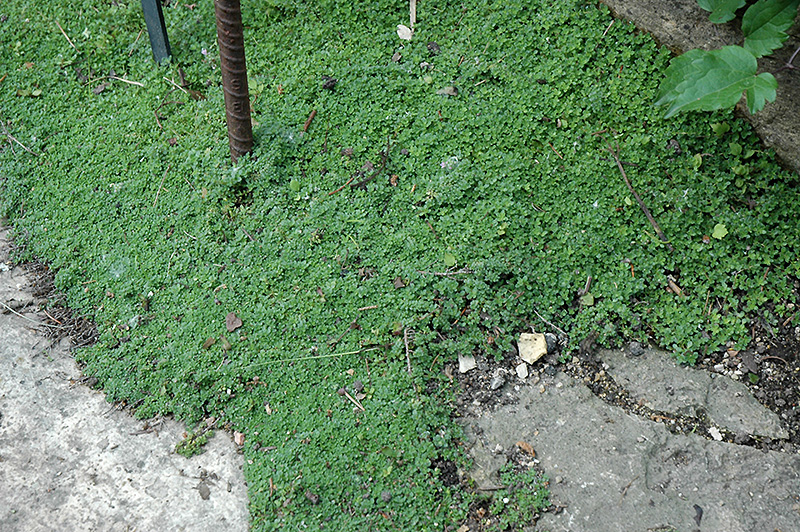Minor Miniature Thyme Thymus praecox 'Minor' Plant Height: 1 inch Flower Height: 3 inches Spacing: 10 inches
Sunlight:
Hardiness Zone: 2 Other Names: Minus Thyme, Creeping Thyme Description: Arguably one of the lowest-growing groundcover perennials available, this tiny spreader literally hugs the ground with its miniscule leaves, lilac-pink flowers appear on short stalks in summer; a very low maintenance plant, excellent for the rock garden Ornamental Features Minor Miniature Thyme is smothered in stunning spikes of lilac purple flowers rising above the foliage from early to mid summer. Its attractive tiny fragrant round leaves remain green in color throughout the year. Landscape Attributes Minor Miniature Thyme is a dense herbaceous evergreen perennial with a ground-hugging habit of growth. It brings an extremely fine and delicate texture to the garden composition and should be used to full effect. This is a relatively low maintenance plant, and is best cleaned up in early spring before it resumes active growth for the season. Deer don't particularly care for this plant and will usually leave it alone in favor of tastier treats. It has no significant negative characteristics. Minor Miniature Thyme is recommended for the following landscape applications; Planting & Growing Minor Miniature Thyme will grow to be only 1 inch tall at maturity extending to 3 inches tall with the flowers, with a spread of 12 inches. When grown in masses or used as a bedding plant, individual plants should be spaced approximately 10 inches apart. Its foliage tends to remain low and dense right to the ground. It grows at a slow rate, and under ideal conditions can be expected to live for approximately 10 years. As an evegreen perennial, this plant will typically keep its form and foliage year-round. This plant should only be grown in full sunlight. It prefers to grow in average to dry locations, and dislikes excessive moisture. It is considered to be drought-tolerant, and thus makes an ideal choice for a low-water garden or xeriscape application. It is not particular as to soil type or pH. It is highly tolerant of urban pollution and will even thrive in inner city environments. Consider covering it with a thick layer of mulch in winter to protect it in exposed locations or colder microclimates. This is a selected variety of a species not originally from North America. It can be propagated by division; however, as a cultivated variety, be aware that it may be subject to certain restrictions or prohibitions on propagation.![]()
![]()
![]()
![]()
![]()
![]()
![]()
![]()
![]()
![]()
![]()
![]()
![]()
Plant Finder
Characteristics
Applications
Features & Attributes

